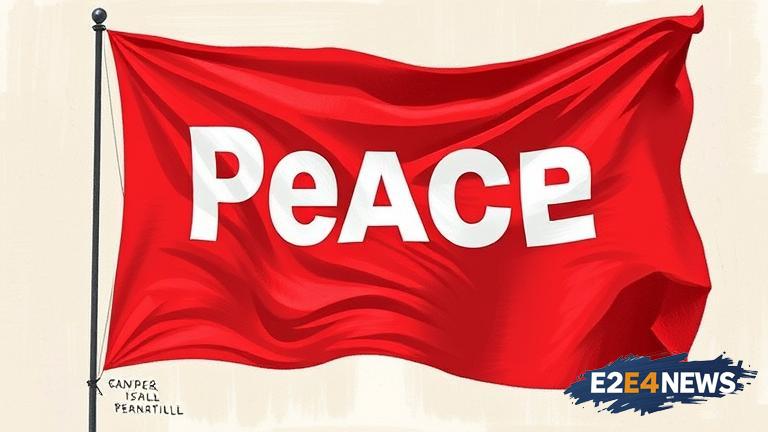The Labour Party in the UK has come under fire for its lack of transparency regarding the funding of a peace organisation founded by Jonathan Powell, a former chief of staff to ex-Prime Minister Tony Blair. The organisation, which aims to promote peace and conflict resolution, has been receiving funding from taxpayers, but the exact amount has not been disclosed. This lack of transparency has raised concerns among critics, who argue that the public has a right to know how their money is being spent. The Labour Party has refused to provide details on the funding, citing confidentiality agreements and the need to protect sensitive information. However, this has only added to the controversy, with many questioning the party’s commitment to transparency and accountability. Jonathan Powell, the founder of the organisation, has a long history of involvement in peace negotiations and conflict resolution, having played a key role in the Northern Ireland peace process. Despite this, the organisation’s funding has become a point of contention, with some arguing that it is inappropriate for a political party to be funding a organisation with such close ties to a former government official. The Labour Party has defended its decision to fund the organisation, arguing that it is an important contributor to the promotion of peace and conflict resolution. However, the party’s refusal to disclose the amount of funding has only added to the controversy, with many calling for greater transparency and accountability. The issue has sparked a wider debate about the role of political parties in funding organisations and the need for greater transparency in government spending. Critics argue that the public has a right to know how their money is being spent and that political parties should be more transparent in their funding decisions. The Labour Party’s refusal to disclose the funding details has also raised questions about the organisation’s effectiveness and whether it is truly making a positive impact. Some have argued that the organisation’s close ties to the Labour Party and Jonathan Powell’s involvement in the party’s inner circle have created a conflict of interest. Others have questioned whether the organisation is truly independent and impartial, given its close ties to a political party. The controversy has also sparked a debate about the role of government funding in promoting peace and conflict resolution. Some argue that government funding is essential for supporting organisations that work towards promoting peace and conflict resolution, while others argue that it can create a conflict of interest and undermine the independence of these organisations. The issue has also raised questions about the accountability of political parties and the need for greater transparency in government spending. The Labour Party’s refusal to disclose the funding details has been seen as a lack of commitment to transparency and accountability, and has sparked calls for greater scrutiny of government spending. The controversy has also highlighted the need for greater transparency and accountability in the funding of organisations that promote peace and conflict resolution. It has also sparked a wider debate about the role of political parties in funding organisations and the need for greater transparency in government spending. The Labour Party’s decision to fund the organisation has been seen as a positive step towards promoting peace and conflict resolution, but the party’s refusal to disclose the funding details has undermined this effort. The controversy has also raised questions about the effectiveness of the organisation and whether it is truly making a positive impact. The Labour Party’s refusal to disclose the funding details has also sparked concerns about the potential for abuse of power and the need for greater accountability in government spending. The issue has also highlighted the need for greater transparency and accountability in the funding of organisations that promote peace and conflict resolution. The controversy has sparked a wider debate about the role of political parties in funding organisations and the need for greater transparency in government spending. The Labour Party’s decision to fund the organisation has been seen as a positive step towards promoting peace and conflict resolution, but the party’s refusal to disclose the funding details has undermined this effort. The controversy has also raised questions about the potential for abuse of power and the need for greater accountability in government spending. The issue has also highlighted the need for greater transparency and accountability in the funding of organisations that promote peace and conflict resolution. The Labour Party’s refusal to disclose the funding details has sparked calls for greater scrutiny of government spending and the need for greater transparency and accountability in the funding of organisations that promote peace and conflict resolution.





